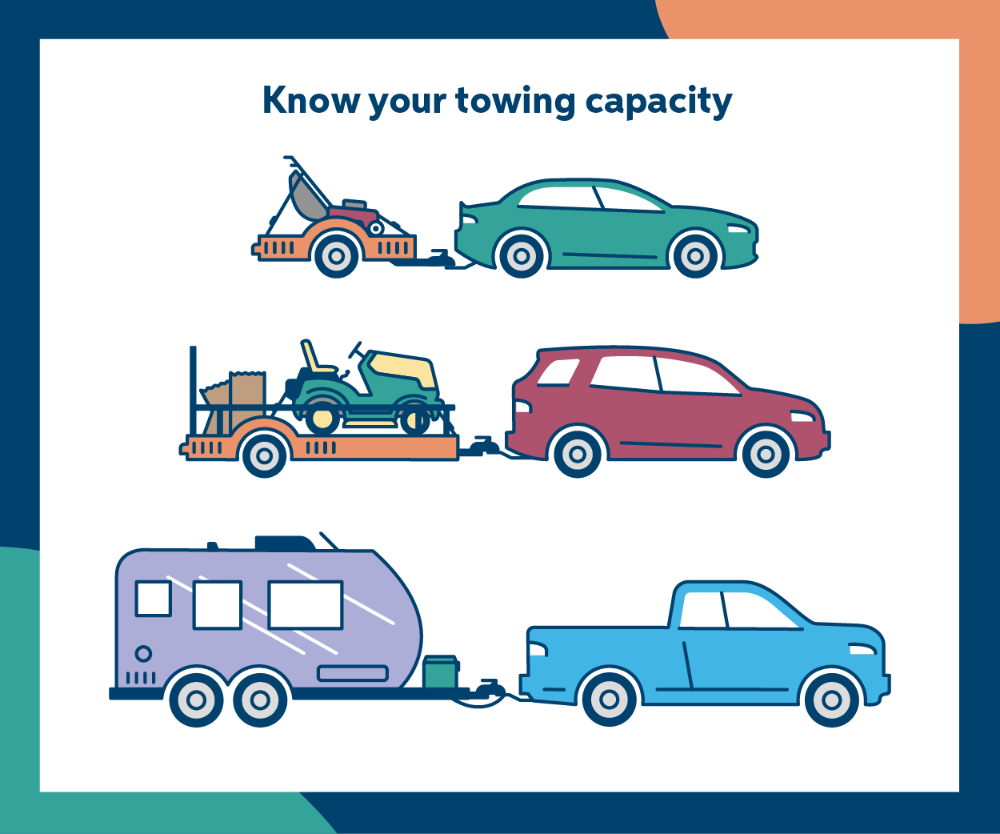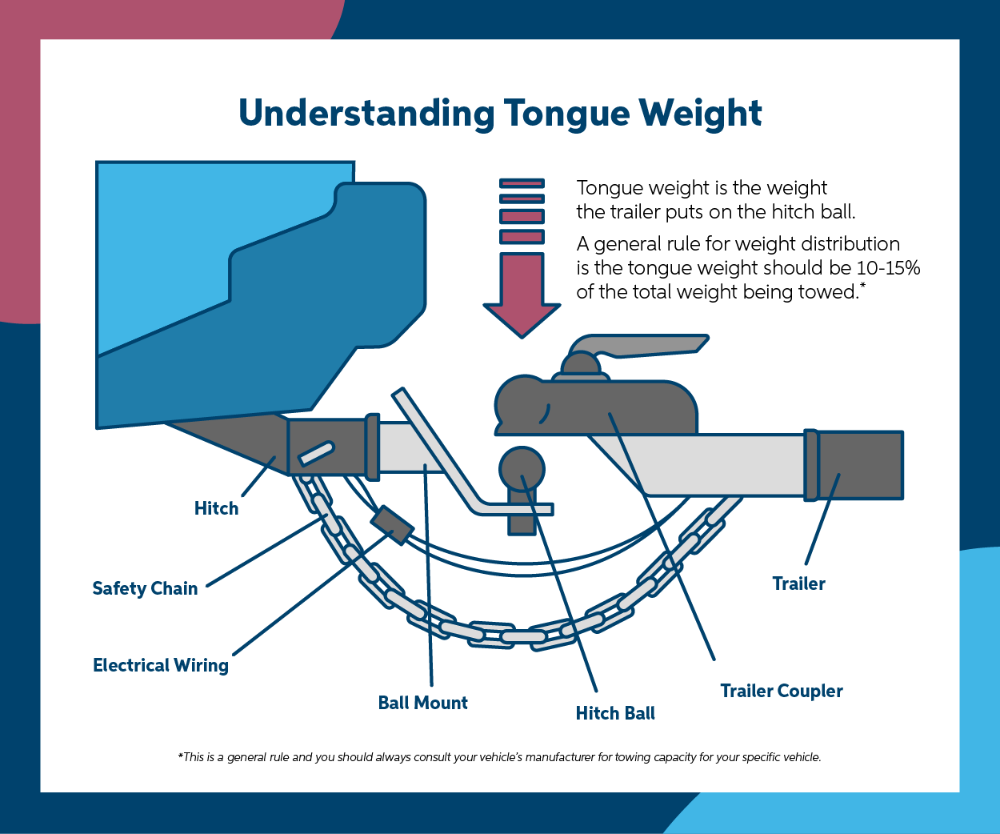Safe towing starts before you hitch up and hit the road. The hitch itself, your vehicle and even how you load your cargo all play a big part in travelling safely while towing.
To get you started on the right track, here’s eight critical mistakes to avoid on your next trip:
1. You only look at your hitch’s towing capacity.
You may be excited that your new hitch is rated to tow 2,000 pounds, but that may be more weight than your vehicle manufacturer recommends for your specific car. Check your owner’s manual to determine your vehicle’s towing capacity. You will likely find that the hitch’s rated towing capacity and your vehicle’s towing capacity from the manufacturer are different. It’s safest to go with the lower of the two capacities. So, whether your car or hitch is the lower, stay within the lower capacity.
Read More: 5 Simple Tips for an Awesome Family Road Trip
2. Your hitch is the wrong class for your vehicle.
Trailer hitch class is important to consider when shopping for your hitch. Each hitch class has recommended vehicle types and certain towing capacities they can safely tow. If you purchase a class three hitch for your car, you won’t magically be able to tow 4,500 pounds and if you try, it will likely damage your vehicle. Just because a hitch is made to fit your specific vehicle, it doesn’t mean that the vehicle can tow the weight the hitch’s class is rated for. Always use the recommended class of hitch for your vehicle. The best place to find the recommended hitch class is your vehicle’s owner’s manual.
3. You underestimate the weight of the unit you’re towing.
Research the weight of the unit being towed or carried via the trailer hitch. All trailer manufacturers publish the weight of their units in their manuals or possibly their website. This is also true with most bicycles, motorcycles and handicap-assisting vehicles. If you’re hauling landscape supplies, especially rock or dirt, make sure you know the weight of the material you’re hauling to ensure you don’t exceed your towing capacity.
4. You underestimate the toll of pulling extra weight often.
When you are consistently transporting heavy items, your vehicle will experience quicker wear and tear. Extra weight is harder on the vehicle’s driveline and may require more frequent fluid changes. It may also cause more wear on the brakes, tires and suspension. An example of a situation where constant extra weight can take a toll is when a vehicle has a hitch-mounted lift installed for transporting a power wheelchair/scooter. The constant extra weight can cause damage to the vehicle over time.
5. You load all the items you’re carrying in the back.
When you load most of the weight you’re towing towards the back of the trailer, your vehicle will likely fishtail. Obviously, this isn’t safe on the road. To avoid this, do your best to evenly distribute the weight you’re towing. This may mean spacing out your items. Don’t forget to make sure these items are properly secured. A general rule for weight distribution is that the tongue weight (the weight the trailer puts on the hitch ball) should be 10-15% of the total weight, but of course, this weight should never exceed any manufacturer’s recommendations.
Read more: 11 RV Safety Tips for a Carefree Camping Trip

6. You try to install the hitch yourself.
Installing a hitch may seem straightforward, but it’s best left to the professionals. Find a credible service provider to install your hitch.
7. You don’t allow enough time to brake.
Possibly the most dangerous mistake you can make when towing is to assume you can stop your vehicle quickly. When you’re towing something, you need to allow ample distance and time to come to a complete stop. Allow more distance between you and the vehicle in front of you. Even slowing down takes more caution. As you drive, be vigilant about anticipating slowdowns and stops.
Read more: What to do When Your Car Overheats
8. You forget to check your tire pressure
Your towing package may be set up properly, but your tires may be underinflated or not of the proper load range. Check your owner’s manual to determine if your tires will support the weight you’re towing. Lastly, check the tire pressure on both the vehicle that is towing and the item being towed, before you hit the road.
As you load up for your next trip, make sure you’re not making these mistakes. For more information like this, follow us on Facebook or Pinterest.
Copyright Auto-Owners Insurance Company © 2022. All Rights Reserved.